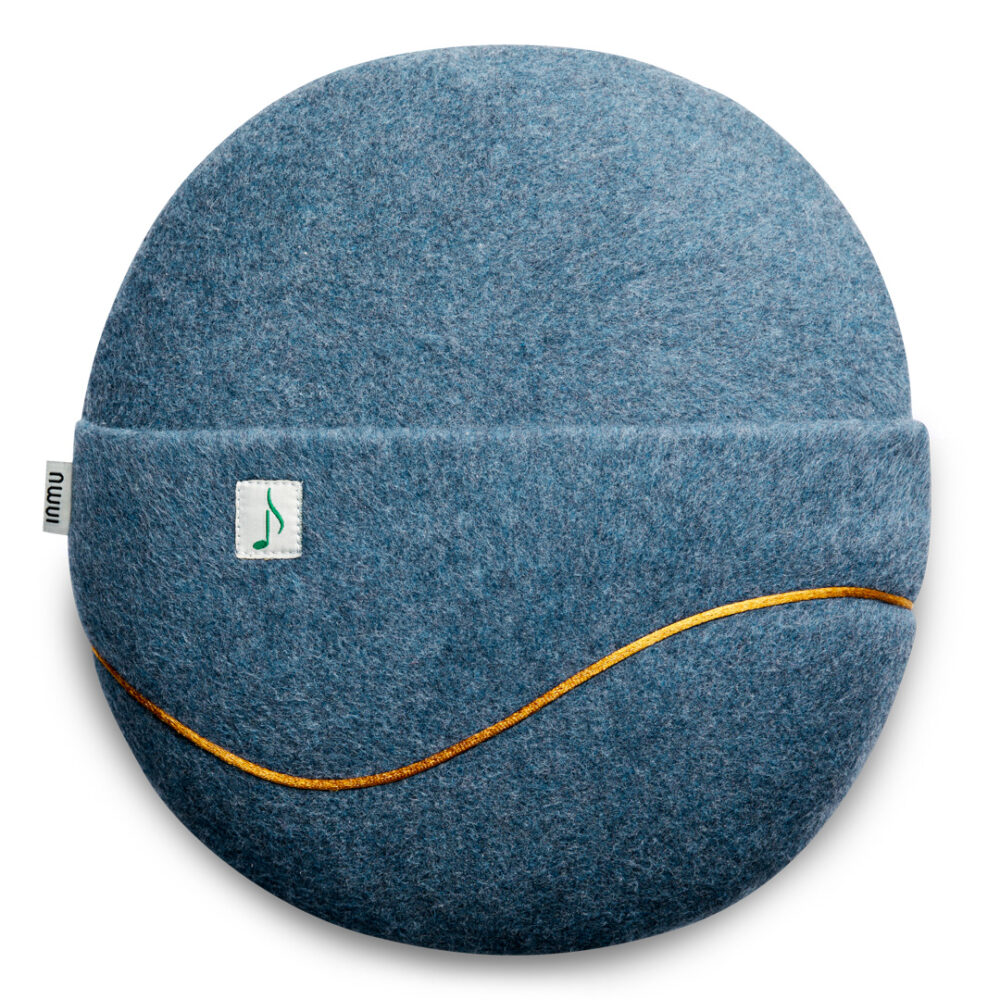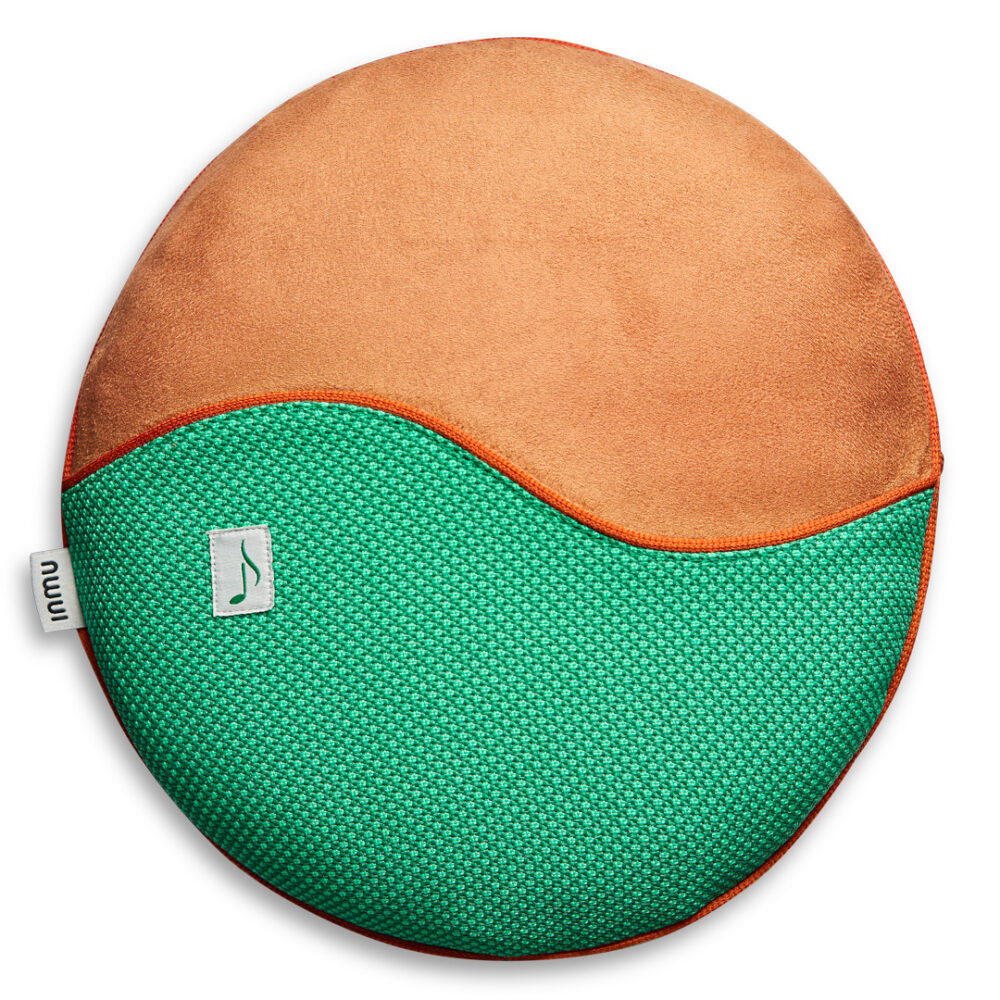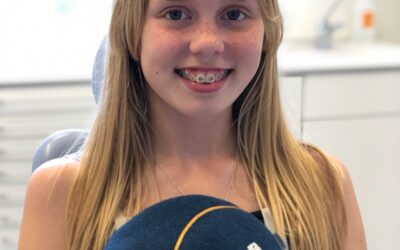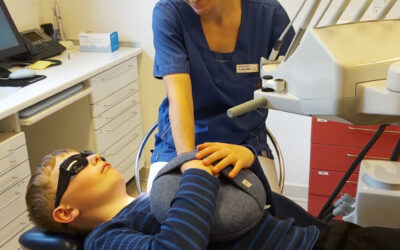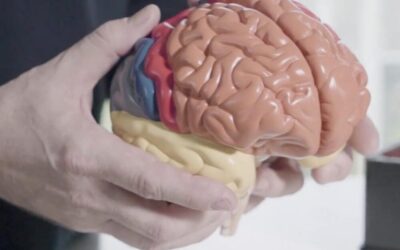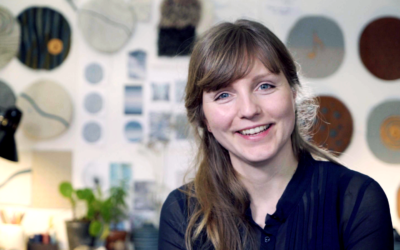Dentist Mariane Sørensen uses the inmu to make going to the dentist a better and calmer experience for people with special needs.
She and her colleague, dental hygienist Jeanette Tøttrup, have been using the inmu for three months, after Randers Public Dental Care
bought three inmus to use in their clinic in Randers.
“I can hear that my voice changes when I use the inmu. It gets lower, because it has this calming effect,” Mariane says.
“When I use the inmu on a new patient, I sit them down in the chair, and tell them that we’ve got a new tool that I want them to try out.”
They both work at a section of the clinic that specialises in helping people with special needs. The response they have received from their patients has been very positive. Especially because of its calming effect.
Easier treatment
The more time Mariane can spend focusing on the treatment and on the patient’s mouth, the quicker and easier it is for her to finish the treatment. This is especially important when treating people with special needs.
“The inmu gives me more time to work on a patient with their mouth open. Because it can help the patient feel calmer and more relaxed when lying in the chair, it makes it easier for me to treat them.”
The responses that she has received from her patients have been very positive.

Robust tool
Working with patients who have special needs can prove challenging, since no patient is the same as another, and everyone needs specialised treatment. This extends to every part of the treatment, from the dental care to the social approaches and the tools used. Effective treatment is individual, and while an approach might work well on one patient, it might not work on another.
“The people that I treat are not always able to say what they like and what they don’t like. Sometimes their way of saying no to something that annoys them is to push it away. And the inmu has also once in a while been kicked or thrown on the floor when I’ve used it. But that hasn’t done anything to damage it. It’s proven quite resilient,” Mariane says.
Facts
Randers Public Dental Care in the Danish municipality of Randers. The clinic treats a broad span of patients, from children to older people.
Specialtandplejen is a specialised section under Randers Public Dental Care. They are dedicated to treating patients with special needs, such as chronic illness, autism, anxiety, ADHD, dementia and brain damage. The clinic treats all age groups and patients who for one reason or another need special care and attention.

The inmu gives me more time to work on a patient with their mouth open.
Children
Among Mariane’s patients are children with physical and mental disabilities.
“I’ve used the inmu on some of the children to comfort them and make them feel at ease with the situation. Sitting in the dentist chair can make you feel very defenceless, and the inmu can help them feel safer. Using it feels like putting on a comfort blanket.”
Her colleague, Jeanette Tøttrup, has also tried using the inmu on children.
“We test everything that we bring into the clinic on ourselves first before we use it on our patients. So, I took one of the inmu’s home with me. It happened by coincidence to be one of the days where I was looking after my grandchildren. I gave it to them to fall asleep with when they took their nap. The oldest is at that age when they have too much energy to sleep. But they both slept very well.”
Autism
Mariane Sørensen uses the inmu to relax and calm her patients during treatments.
Creating a relaxed atmosphere is especially important when working with people with autism, who are easily overstimulated by sensory stimuli such as sound, smell and touch. This makes them easily stressed by the daily noises in a dental clinic.
“It can be something as small as the noise of the suction or someone talking outside in the hallway. I lay the inmu on their chest, and make them put their hand inside the inmu’s pocket. It makes them feel like they are holding someone’s hand, and it calms them down enough for me to be able to complete the treatment,” Mariane says.
Dementia
“One of my patients is a woman with dementia. Sometimes she can be very restless and agitated. She can be difficult to treat if you catch her in the wrong mood. I don’t know if it was because of the inmu, or just because we caught her on a good day, but I gave the inmu to her, and I managed to finish her treatment without any problems,” Mariane says.
People with dementia are often harder to treat, because they are less able to understand unfamiliar situations. They easily become confused and stressed during treatment, and can sometimes become agitated or violent. This is one of the reasons why many people with dementia do not receive the dental care they need.
Read more about the inmu and order here
Get inspired on how to use inmu in dental care
Sara overcame her dental anxiety
Sara was afraid of going to the dentist, but ever since her dentist began offering her the inmuRELAX sensory cushion,...
read moreEasing dental anxiety with relaxing interactive music
It is estimated that about half the population feels anxious about going to the dentist (dental anxiety or dental...
read more“Everything gets easier when you are calm”
Going to the dentist can be a harrowing experience. Dental hygienist Nina Rune uses inmuRELAX to help ease dental...
read moreRead more
What is an inmu?
The inmu combines tactile and musical stimulation in a soft interactive cushion that …
Multisensory stimulation
Our senses are essential for us to feel alive, when meeting with others and …
Interactive music
The inmu is the first sensory stimulation tool in the world to …
Moving body and brain
We are all made to move. If you are not using your muscles for a short while …
Why music and sensory stimulation is medicine for the brain
Several studies shows that music can heal an injured brain …
The tactile experience of the inmuRELAX
We knew from the very beginning of the inmu development process that design should be an integrated part of the...
Studies
We have been so privileged that both healthcare professionals, scientists, …

